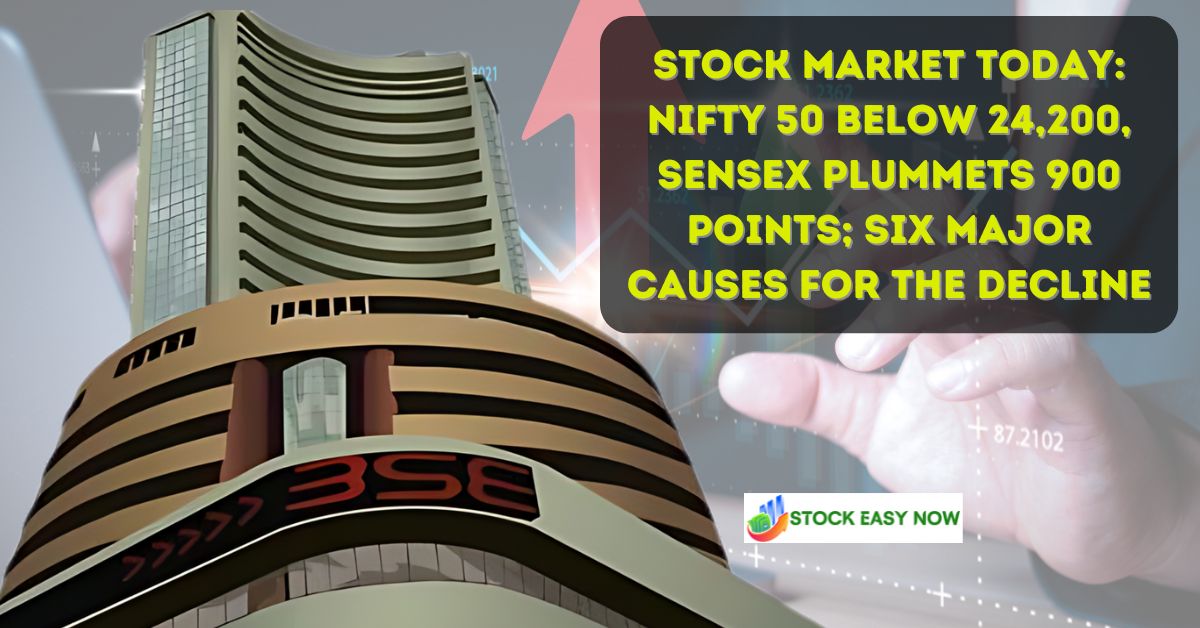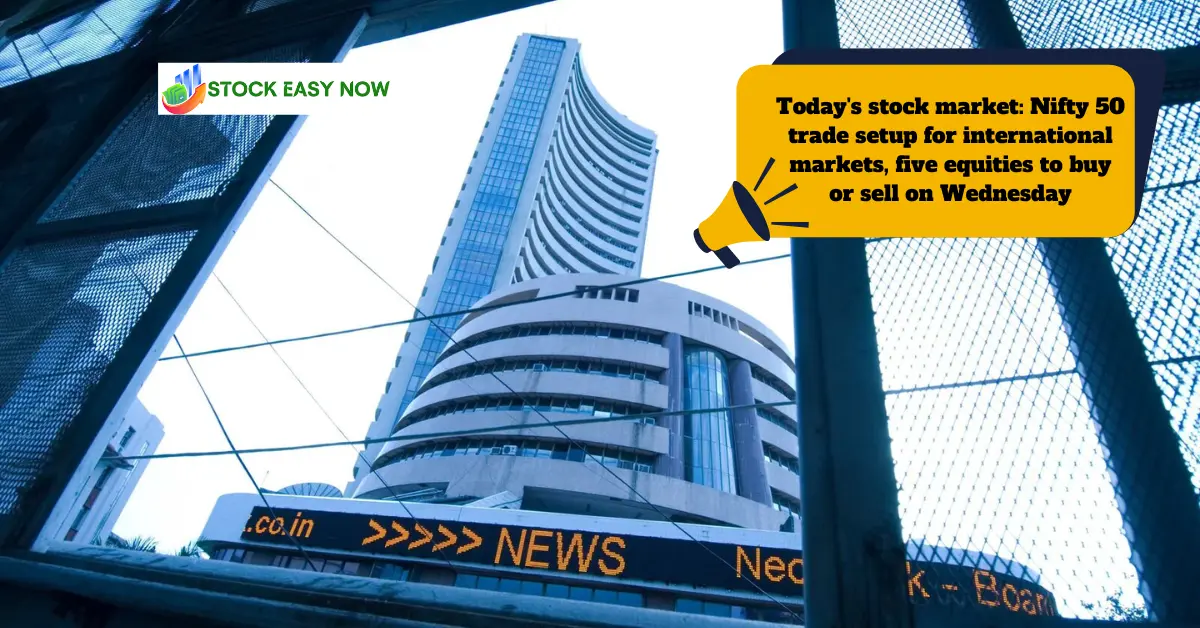On Wednesday, profit booking at higher levels caused the Indian stock market indices to fall by one percent apiece. While the Nifty 50 lost more than 200 points to close below 24,200, the Sensex fell more than 900 points to below the 79,600 mark.
The Nifty 50 fell 291 points to 24,141.80, while the Sensex fell 915.88 points to an intraday low of 79,435.75. In today’s opening trade, the benchmark Nifty 50 reached a new high of 24,461.05.
Also trading roughly 1% lower was the Bank Nifty index. At a low of 52,077.90, the index fell 491 points.
Almost every sectoral index was experiencing negative trade, with the Nifty Auto, Nifty PSU Bank, Nifty IT, and Nifty Oil & Gas indices experiencing the most declines. In the wider markets, selling also increased. Over 1.5% was lost by both the Nifty Midcap 100 and Nifty Smallcap 100 indexes.
Tuesday saw the record highs for the Nifty 50 and Sensex, the key equity indices. Investor mood was, however, dampened by profit booking at higher levels amid worries about stretched valuations, caution ahead of Q1 results, and conflicting global market cues.
“The high degree of speculative activity in the Smallcap space should cause investors to exercise caution, as operators are pushing up the prices of numerous shares with low floating stock.”
Technically speaking, the Nifty surpassed the 24,300 mark, which is a significant downside support.
The founder and CEO of SAS Online, Shrey Jain, observed that Bank Nifty has continued to perform poorly in comparison to Nifty.
We anticipate that Bank Nifty will remain around the 52,500 mark for today’s weekly expiry; however, a decline towards 52,250 would offer a buying opportunity. We may wait for any changes in course that may result from current affairs. Trending moves are probably going to follow a clear break in either way, according to Jain.
The following are the main causes of today’s stock market decline:
Global cues are mixed
Asian markets remained neutral amid overnight advances on Wall Street following dovish comments from US Federal Reserve Chairman Jerome Powell. Market players were focusing on Japan and China’s inflation figures.
In June, China’s consumer price inflation increased by 0.2% from the previous year, but producer prices decreased by 0.8%, as expected. Wholesale inflation in Japan surged by 2.9% in June compared to the previous year.
Profit Booking
Investors chose to book profits in the stock market following a good run by both benchmarks. The Sensex reached a record high of 80,481.36 in early morning trade today, July 10, while the Nifty 50 also reached a record high of 24,461.05. The market’s inflated valuations spurred investors to book profits on expensive stocks.
Rate Cut Uncertainty
Rising concern over the US Federal Reserve’s interest rate cuts this year weighed on the stock market. In his statement before Congress, US Fed Chair Jerome Powell expressed caution about the timing of rate decreases.
Powell stated that a rate drop is not warranted until the Fed has “greater confidence” that inflation is approaching the 2% target.
Concerns about Domestic Inflation
Concerns over rising domestic inflation, or India’s retail inflation, which is based on the Consumer Price Index (CPI) and is predicted to increase in June, also negatively impacted investor confidence.
According to economists, rising food costs, mostly from the high cost of vegetables, will likely cause CPI inflation to slightly increase to 5% in June from 4.75% in May. Although core CPI inflation is expected to bottom out in June at 3.2%, it is likely to be moderate.
First Quarter Results
India Inc.’s Q1 earnings should be dismal. The predicted net profit for the Nifty 50 would decrease gradually. The BSE-30 index’s Q1FY25 net earnings may rise 8.1% year over year (YoY) but decreased 8.4% quarter over quarter (QoQ), according to Kotak Institutional Equities. PAT is predicted to fall 10.7% QoQ but remains flat YoY for the Nifty 50 index.
Earnings per share (EPS) of the Sensex index are projected by the brokerage business to be ₹3,521 in FY25 and ₹4,063 in FY26. For FY25 and FY26, respectively, it projects the Nifty 50’s EPS to be ₹1,093 and ₹1,249.
From a technical standpoint
Angel Investor Rajesh Bhosale, Equity Technical Analyst By many criteria, one feels the market is overbought.
Therefore, we advise avoiding taking large, aggressive holdings. The golden ratio retracement of the panic decline witnessed following the election day results is a key level to keep an eye on 24,600–24,650. He stated that 24,330 and 24,160 provide quick support and resistance, respectively, on the downside.
In recent sessions, defensive sectors such as FMCG and Pharma have been preferred, and auto stocks have also demonstrated strength. In contrast to the major indices, Bhosale suggests traders concentrate on these sectors for superior momentum and risk-reward.





